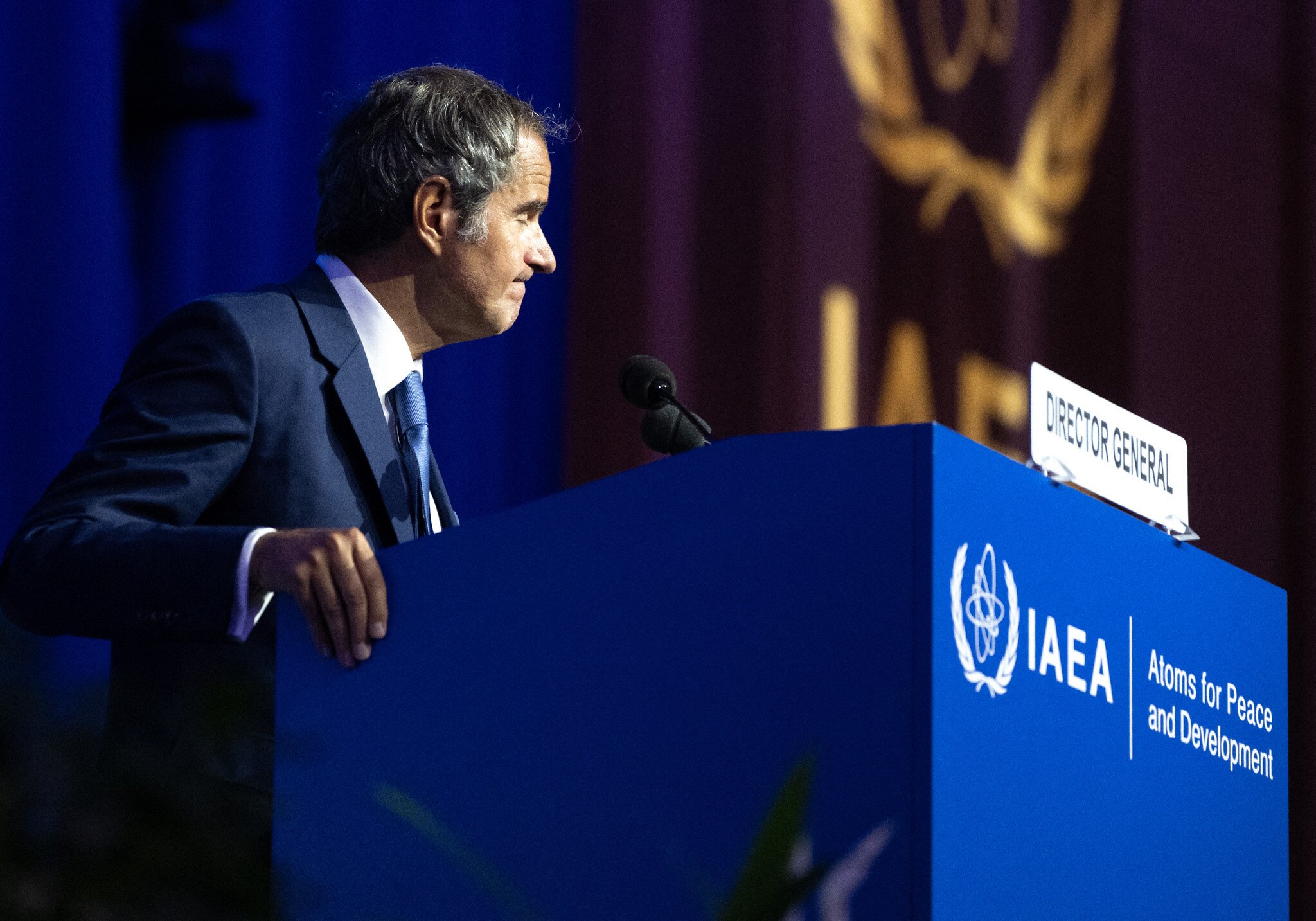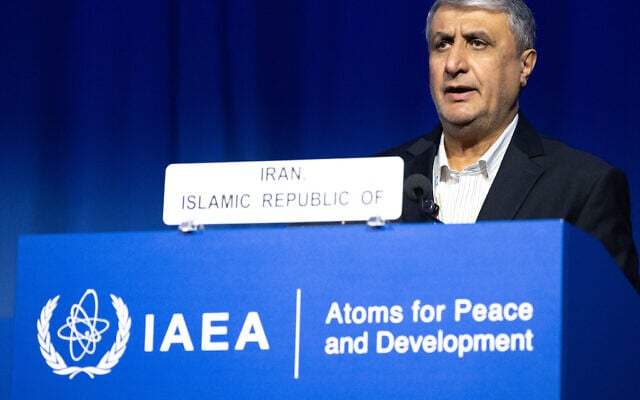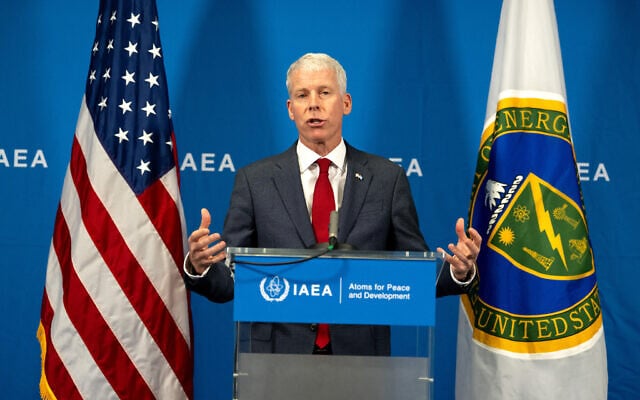


The UN atomic watchdog’s chief called Monday for the implementation of a cooperation framework it struck last week with Iran, saying it was essential to “restore confidence” after the agency’s work was halted.
Iran agreed to the deal with the International Atomic Energy Agency (IAEA) in Cairo, after it suspended cooperation following its war with Israel in June.
The 12-day war saw Israeli and US strikes on key Iranian nuclear facilities, which IAEA inspectors have not been able to access since.
Addressing the opening day of the agency’s annual General Conference, IAEA chief Rafael Grossi said it was now time to implement the deal “to restore confidence” and allow the agency “to continue our work in spite of all these difficulties.”
“Now it’s up to… Iran and us to implement” the deal that “summarizes the technical measures, the practical steps that we need… to resume this indispensable work in Iran,” Grossi said in his speech.
Tehran has said the new framework grants access to UN nuclear inspectors only after approval by its Supreme National Security Council, Iran’s top security body.
In his statement to the general conference, Iran’s atomic energy organization chief, Mohammad Eslami, said that following the attacks on its nuclear sites, “continued cooperation with the agency will be pursued through new arrangements once the security concerns of our nation and our nuclear facilities are addressed.”
“Currently, no provision has been provided for the safeguards agreement as to how to continue engagement on the very critical situations following the aggression and continuation of threats against nuclear sites and facilities,” he said.
But he added that Iran “remains a state party” to the Non-Proliferation Treaty (NPT) despite passing a law that halted cooperation with the IAEA.
US Energy Secretary Chris Wright told the conference that Iran’s uranium enrichment program must be “completely dismantled.”
Iran’s enrichment plants were seriously damaged or destroyed in the Israeli and US attacks during the 12-day war in June. It is less clear, however, what happened to its stock of some 440.9 kg (972 lbs) of uranium enriched to up to 60 percent purity — close to the 90% needed for weapons-grade.
That amount of uranium, if enriched further, would be enough for ten nuclear bombs, according to an IAEA yardstick.
“If it wasn’t already clear enough, I will restate the United States’ position on Iran,” Wright said in a speech to the meeting of all IAEA member states. “Iran’s nuclear weapons pathway, including all (uranium) enrichment and (plutonium) reprocessing capabilities, must be completely dismantled.”
Britain, France and Germany, known as the E3, have initiated a one-month process to re-impose sanctions on Iran lifted under a 2015 nuclear deal that unraveled after President Donald Trump pulled the United States out in 2018.
The E3 have said they might hold off on completing that process if Iran lets IAEA inspections fully resume, accounts for its enriched uranium and holds direct nuclear talks with the United States.
It was still unclear whether enough progress will be made under Iran’s new agreement with the IAEA to satisfy the Europeans.
“We hope dialogues restart and we hope they’re successful. I think there’s a reasonable chance they will be,” Wright later told a press conference.
Asked what the United States was offering Iran, he said: “Rejoining the community of trading nations, removal of sanctions. It would be a home run for the Iranian people, and we’ve talked about other things as well, so there’s plenty of carrots for Iran to abandon their nuclear weapons program.”
Iran, which avowedly seeks Israel’s destruction, denies trying to attain nuclear weapons, but it has enriched uranium to levels that have no peaceful application, obstructed international inspectors from checking its nuclear facilities, and expanded its ballistic missile capabilities.



